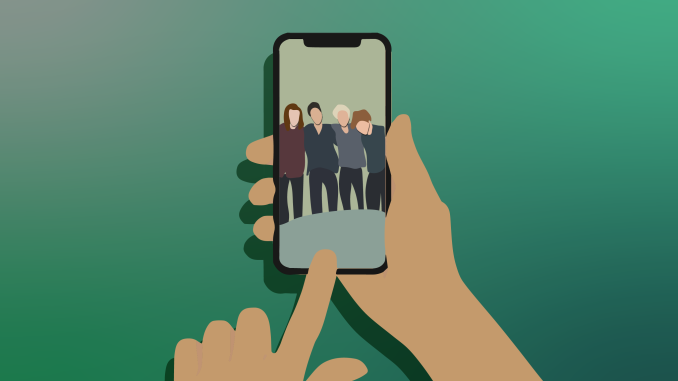
Being a One Direction fan in my early teens progressed my pursuit of journalism.
While the connection between a career servicing people’s access to information and fan spaces for a popular boy band may seem obscure, I promise it’s there.
One Direction’s appeal was simple. Their upbeat, catchy music and active social media presence guaranteed there would never be a boring day as a fan.
In 2012, the pinnacle of my obsession, I avidly used the fairly new and unregulated social media platform, Instagram. With no way to flag misinformation and roughly 110 million fewer active users than present day, it was easy to avoid pushback against inaccurate content.
Because my responsibilities as a fifth grader never extended far beyond completing long division assignments and occasionally taking out the trash, I dedicated a vast amount of time to scrolling through my feed and engaging with fan-curated content.
The fanlore surrounding One Direction during this era was complex. What initially began as a community of mostly adolescent girls appreciating the band and its music swiftly became a utopian destination for conspiracists. A post expressing a desire to hear a certain member sing more evolved rapidly into a rumor that management deliberately turned his microphone off at concerts.
As the band gained traction, few prestigious news sites wrote articles about the less monumental steps in their careers. For more insight on upcoming projects or to check on a member’s relationship, I resorted to gossip blogs and fan pages.
While I now laugh looking back at the stress I willingly endured instead of simply logging off, being a fan was a full-time job for me at the time. Offline, I was just as dedicated to this role, attending school with One Direction notebooks and a knack for ignoring all the guys that made fun of me for it.
“Yeah, the band donates like all of their money to their hometowns,” I said to a guy on the bus ride home from school one day.
“What? How would that even work?” He asked.
I rolled my eyes like it wasn’t even up for discussion. It made complete sense to me that the world’s most popular boy band at the time sold out stadiums to fundraise for their communities.
“That sounds very weird and fake,” he said.
By 2013, I read enough fake album announcements, band breakup rumors and false death claims to know that the boy on the bus had a point.
After encountering an abundance of misinformation, I learned to be wary of bold claims from accounts with less than 500 followers — it wasn’t a rational business move for the band to share insider information with an account that had blurry photos and a small following. I noted the repeated conspirators, either blocking them or ensuring I never took their allegations seriously. If there was an article on a website with countless pop-up ads and a layout that hadn’t been updated since 2007, I knew to look elsewhere.
Once I blocked a majority of the One Direction fan accounts, I learned to only trust press releases or direct quotes from the band or their team.
Most importantly, the terrible gossip blog content I encountered in this period of my life made me that much more appreciative of quality articles. While I initially read entertainment pieces, I started consuming columns that made me realize pop culture can wield societal or political significance.
In some ways, One Direction was groundbreaking. Before Zayn Malik, a band member of Pakistani descent, I dreaded the dozens of questions that arose after I stated I’m from Pakistan. The more I read, the better I articulated that I didn’t just have a schoolgirl crush on the band, but a deep appreciation — there was representation for my community that wasn’t just a stereotype from a war movie.
Though I didn’t realize it at the time, I was establishing basic media literacy and research skills that would later benefit my path as an aspiring journalist.
The disappointment that officially absolved my involvement with the One Direction fan space is often referred to as baby gate, a theory that Louis Tomlinson, one of the members, faked his fatherhood, Vox reported. Conspirators claimed his child was actually a cover up for his relationship with fellow member, Harry Styles, and any suggestions otherwise stemmed from inattentiveness or homophobia.
I knew this odd rumor was a lie the moment I read it. With fully developed media literacy skills, I used this as the final push to grow up, to take my energy and newfound capabilities outside of the fandom bubble.
Now, I know how to push back against vague responses in interviews and to approach new information with a healthy dose of skepticism. But even if I didn’t develop these professional skills, I still believe there is merit to being immersed in fan spaces.
Though I’ve outgrown it, I’m not embarrassed I dedicated a fair portion of my childhood to being a One Direction fan. Despite the commonly held belief fan spaces are an aspect of silly teenage girl hysteria, I genuinely learned and grew from my experience in one.
I didn’t just obtain a greater value for truth, but an understanding that pop culture moments do matter outside of these online communities, and it would be a disservice to deny their contributions to a larger cultural collective.


Be the first to comment